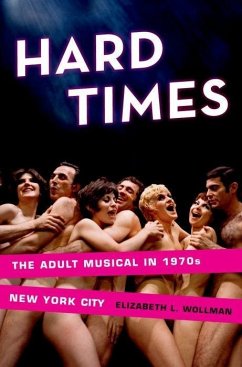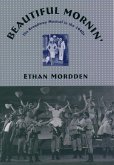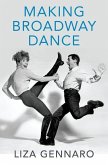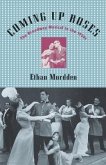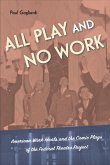One legacy of the 1960s sexual revolution was the "adult" musical of the 1970s. Adult musicals distinguished themselves from other types of musicals in their reliance on strong sexual content, frequent nudity, and simulated sexual activity. Cheap to produce, adult musicals proliferated in New York's theatres at a time when the city was teetering toward bankruptcy and tourism was sharply declining. Influenced by the overwhelming success in 1968 of "Hair"-the first Broadway musical to feature nudity-as well as by a series of legal rulings about the nature of obscenity, adult musicals became faddish in part because they allowed theatre producers to attract audiences at a time of economic crisis while simultaneously slashing budgets typically allotted for scenery, props and, of course, costumes. Typically structured like old-fashioned revues, with thematically interconnected songs and skits, adult musicals like "Stag Movie," "Let My People Come," "The Faggot," and the long-running "Oh! Calcutta!" were reviled by theatre critics, who tended to dismiss them as either going too far in the direction of hard-core pornography or, conversely, of not being erotic enough. But critics, who could typically close a show with a single scathing review, were no match for the public appetite for sex and even the shows that got the worst reviews usually made money. Adult musicals disappeared almost entirely by the early 1980s, as the city's economy improved and the country grew more socio-politically conservative, and they have since been dismissed by writers and critics as a silly fad befitting a silly decade. Author Elizabeth Wollman finds a much richer story in adult musicals, illustrating how they both drew from and reflected aspects of American culture at a particularly tumultuous time: the country's rapidly changing sexual mores, the women's and gay liberation movements, New York City's socioeconomic status, and contemporary debates on the relationship between art and obscenity. She argues that because of their middlebrow appeal and their concentration in a city that experienced the 1970s in especially turbulent ways, adult musicals represent aspects of 1970s American culture at their messiest and most confused, and thus, perhaps, at their most honest.
Hinweis: Dieser Artikel kann nur an eine deutsche Lieferadresse ausgeliefert werden.
Hinweis: Dieser Artikel kann nur an eine deutsche Lieferadresse ausgeliefert werden.

